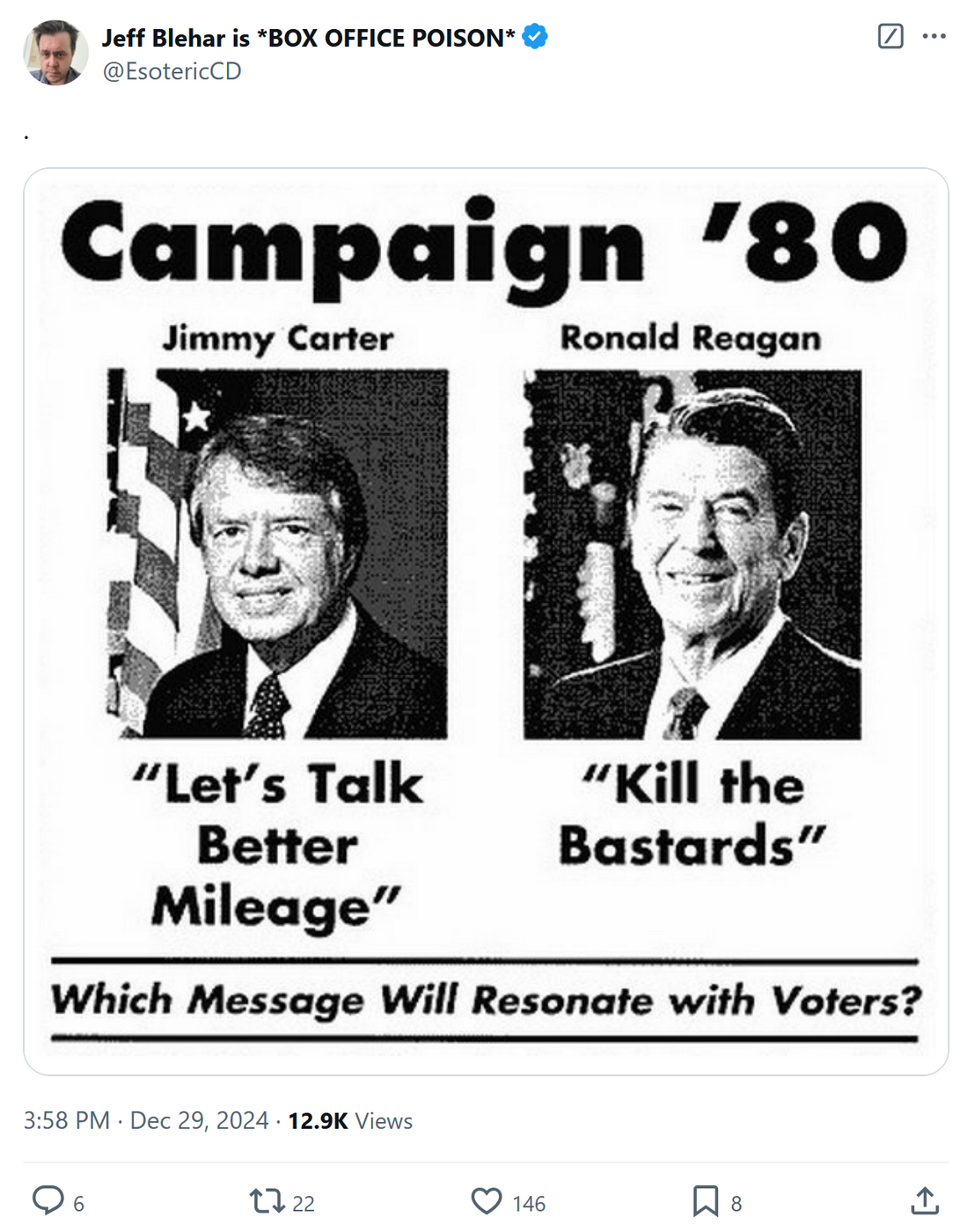STEVE HAYWARD: The Under- and Over-Estimated Jimmy Carter, RIP.
Carter presents layer upon layer of difficulty to untangle. Carter’s one-time speechwriter Patrick Anderson observed that in Carter’s hometown of Plains, Georgia, neighbors said of him that after an hour you love him, after a week you hate him, and after ten years you start to understand him. (Anderson added that anyone who didn’t have a personality conflict with Carter, didn’t have a personality.) Anderson also described him as a combination of Machiavelli and Mr. Rogers. The Washington Post’s Sally Quinn observed: “The conventional image of a sexy man is one who is hard on the outside and soft on the inside. Carter is just the opposite.” Fellow Southern Baptist Bill Moyers said “In a ruthless business, Mr. Carter is a ruthless operator, even if he wears his broad smile and displays his southern charm.” Part of the mystique of Carter was his careful and successful positioning as someone “above politics.” He gave off an air that he is too good for us, or certainly better than the rest of his peers in politics. Carter exemplified the paradox of taking pride in denouncing the sin of pride. He also displays a talent for combining self-pity and self-righteousness, sometimes in the same sentence.
He was a maddeningly contradictory figure. He first achieved statewide office in Georgia with a cynical race-baiting campaign, and then immediately proclaimed that the time had come for the South to repudiate its racist ways. An avatar of morality and truthfulness, Carter bent the truth and had a singularly nasty side to his character that ultimately helped cost him the presidency in 1980. David Brinkley observed of Carter: “Despite his intelligence, he had a vindictive streak, a mean streak, that surfaced frequently and antagonized people.” Eleanor Randolph of the Chicago Tribune wrote: “Carter likes to carve up an opponent, make his friends laugh at him and then call it a joke. . . [He] stretched the truth to the point where it becomes dishonest to call it exaggeration.” New York Times reporter James Wooten called Carter “a hyperbole addict.” And Gary Fink, author of a generally favorable study of Carter’s governorship, notes that “Carter usually claimed the moral and ethical high ground” but “practiced a style of politics based on exaggeration, disingenuousness, and at times outright deception.” Carter seldom if ever repented of his nastiness or asks forgiveness. Instead, when called out for an egregious personal attack, Carter displayed the advanced skills of evasion that made him such an effective presidential candidate, at least until the public caught on in 1980.
The man with the legendary smile could be unfriendly and cold. “There were no private smiles,” said one disgruntled campaign aide in 1976. His personal White House secretary, Susan Clough, recalled that Carter rarely said hello to her as he walked by her desk. Not a “Happy Thanksgiving,” or a “Merry Christmas.” Nothing, she says. Arthur Schlesinger Jr. judged Carter to be a “narcissistic loner.” “Carter was never a regular guy,” Patrick Anderson observed; “the sum of his parts never quite added up to that. . . Carter talked his way into the presidency, yet in some profound way he never learned the language of men.”
Exit question from 1980:

UPDATE (FROM GLENN): “He’s history’s greatest monster!!”
